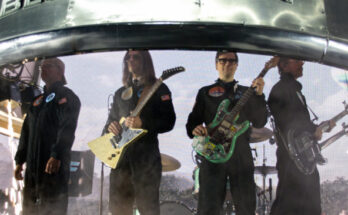By Quinn Donoghue – After a five year hiatus, Liverpool based singer-songwriter, Duncan Patterson has returned with an emotionally charged and hauntingly beautiful record, Grace Road. The five song slate showcases Patterson’s ability to construct a hypnotizing and alluring musical atmosphere that teleports the listener into a world of wonder and mystique. Musically, the songs are gentle by nature with the usage of melancholy piano parts, drawn out string sections, and delicate singing; yet, the delivery of such powerful emotions and the eeriness of the record is heavy in contrast, certainly not warranting a description of “easy listening.” With the aid of Palestinian vocalist, Enas Al-Said, Patterson seems to be at the height of his musical powers as he exhibits refined songwriting, atmospheric production, and unorthodox harmonies.
The opening track, “Absolut Absolutum” immediately establishes the haunting yet enchanting aura that permeates throughout the album. After a long intro of angelic choir-like vocals that gradually builds, it shifts into a piano melody that is played so precisely and intensely that it induces shivers into your spine. Al-Said then chimes in with rousing lyrics like “Lead us back to Heaven/Free us from this solutidue/Guide us through the starlight/When our minds are breaking too soon,” and the song ultimately crescendos as ambient percussion sounds are added to the mix. “The Quiet Light” seems to be somewhat of an extension of the previous track, featuring spiritual lyrics, gripping and melodious piano, and Al-Said’s dreamlike singing. Patterson even harmonizes on certain phrases, ironically evoking some similarities to the Alice In Chain’s signature- dark but beautiful- harmony sections. Though the opening tracks combine to be over sixteen minutes long, there is not a single dull moment, with every word, chord, and transition being carefully thought out and executed.
The use of heavy, bolstering drums on “Walking Between Worlds” highlights a stark transition in comparison to the previous songs. This number stands alone as my personal favorite because the instrumentation is so otherworldly and ominous; however, it is magically paired with ethereal and absolutely gorgeous singing, forming a juxtaposed but cohesive piece of music. “The Amber Line” is driven by a chilling electric guitar riff and low, whisper-like harmonies from Patterson and Al-Said. The album closes with the album titled, “Grace Road.” This purely instrumental track perfectly envelops the sort of eeriness that many people will associate with this record, but it simultaneously generates feelings of hope and liveliness as well, sending the album off on a positive note.
Simply put, Duncan Patterson has created something special with Grace Road. It is an album that oozes passion, creativity, and exploration. One would be hard pressed to compare these five songs to anything else because it truly stands alone as a disparate, unified expression.


